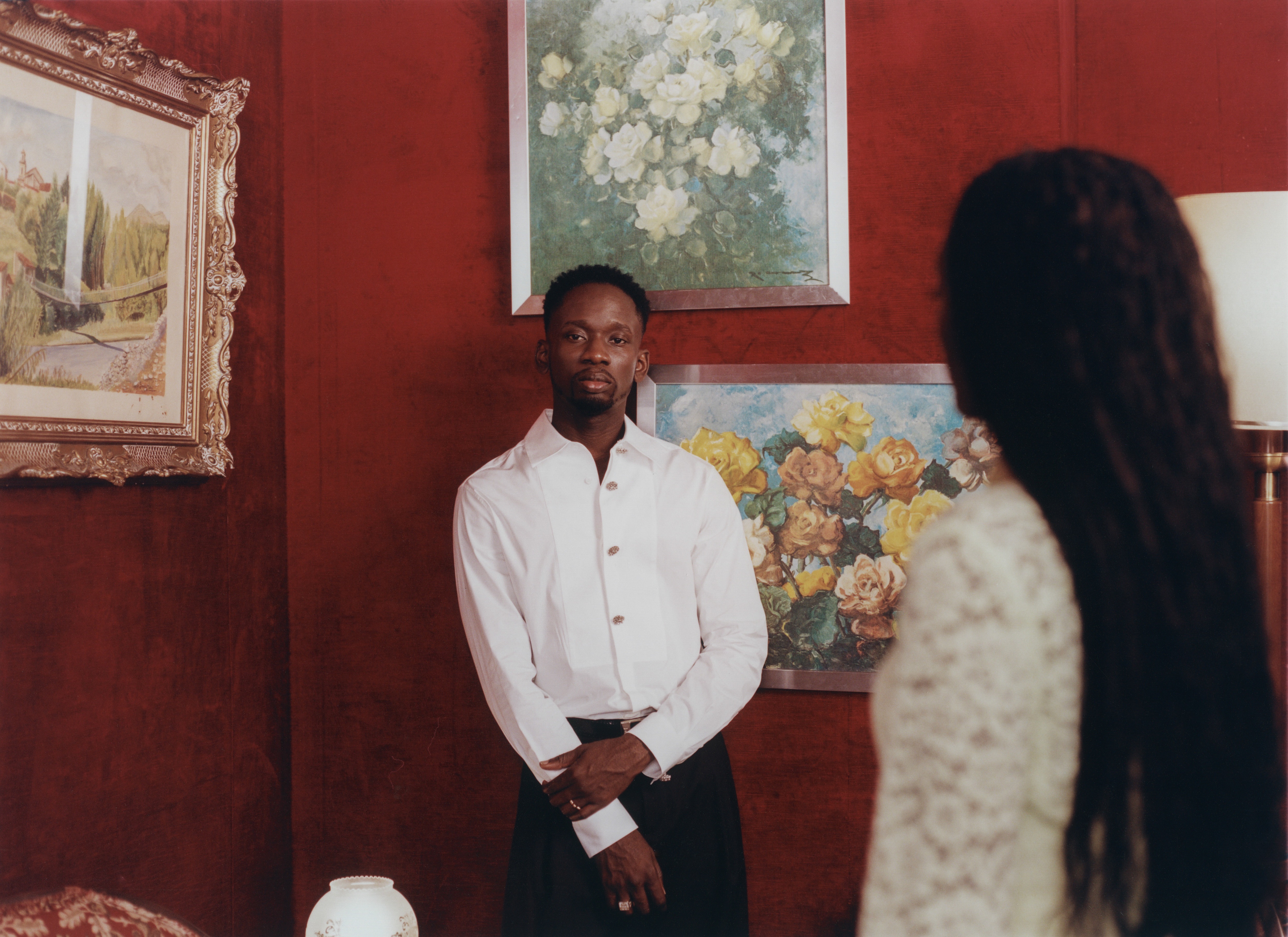
Oluwatosin Oluwole Ajibade, better known as Mr Eazi, is a 34-year-old artist from Port Harcourt. Growing up in Ghana and Nigeria, he invented a unique blend of music named “Banku.” Now, a decade into the game and a pioneer of Afrobeats, he has an important message to share.
We caught up with him right before the release of his EP “Maison Rouge” after a year of celebration of love.
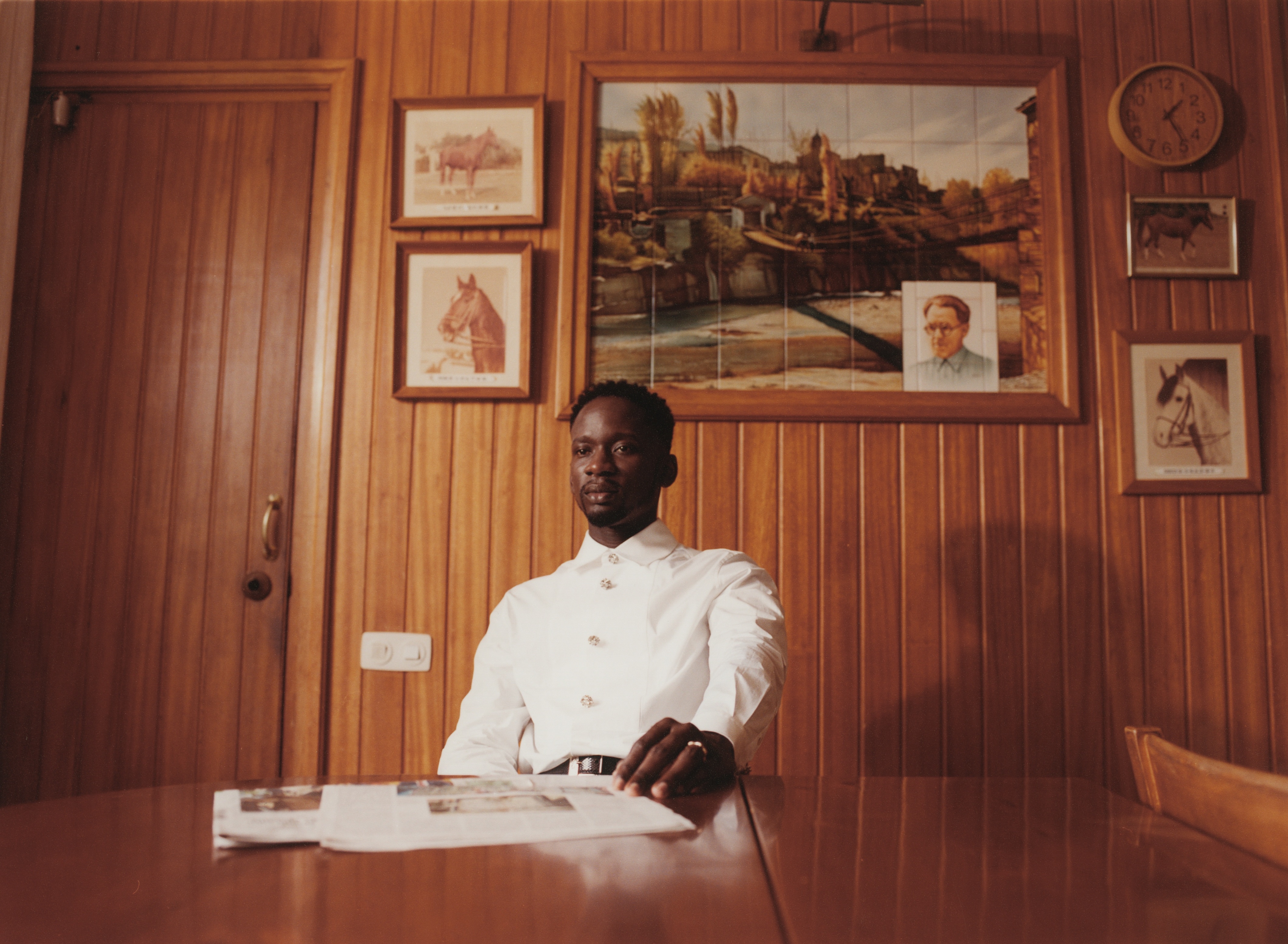
Would you like to introduce yourself to our audience?
Yeah, my name is Mr Eazi. I’m an artist, an entrepreneur, and a builder of things. I make music, which I sometimes call Banku Music, a mix of Ghanaian highlife, Nigerian chord progressions, and my own stories. Over the years, I’ve also built platforms like emPawa to support the next generation of African creatives.
Tell us a little about your upbringing; how was it like for a young Eazi growing up in Port Harcourt?
Growing up in Port Harcourt was interesting. It’s a city full of energy and hustle. My dad was an entrepreneur, my mum ran a small business, so the spirit of building from scratch was always around me. But I also spent time in Lagos and Ghana, so my childhood was really a mix of cultures. That’s why my music naturally blends different influences; it’s who I am.
It’s hard to believe it’s been a decade since “Skin Tight”, a track that helped define the global Afrobeats wave. When you look back, what do you think made that song so timeless?
I think Skin Tight was pure. It wasn’t trying to chase a trend. It was just me and Efya vibing to a beat from Juls, expressing emotion in the simplest form. The honesty in that record made it timeless. People felt it, whether in Lagos or London, Nairobi or New York.
If you could talk to the 2015 version of Mr Eazi, the one just about to drop “Skin Tight”, what advice would you give him now?
I’d tell him to keep trusting his intuition and to rest more. Back then, I didn’t know how fast things could move once a song connects. I’d remind him that success isn’t a sprint, it’s a journey. And to enjoy every moment without losing himself in the rush.
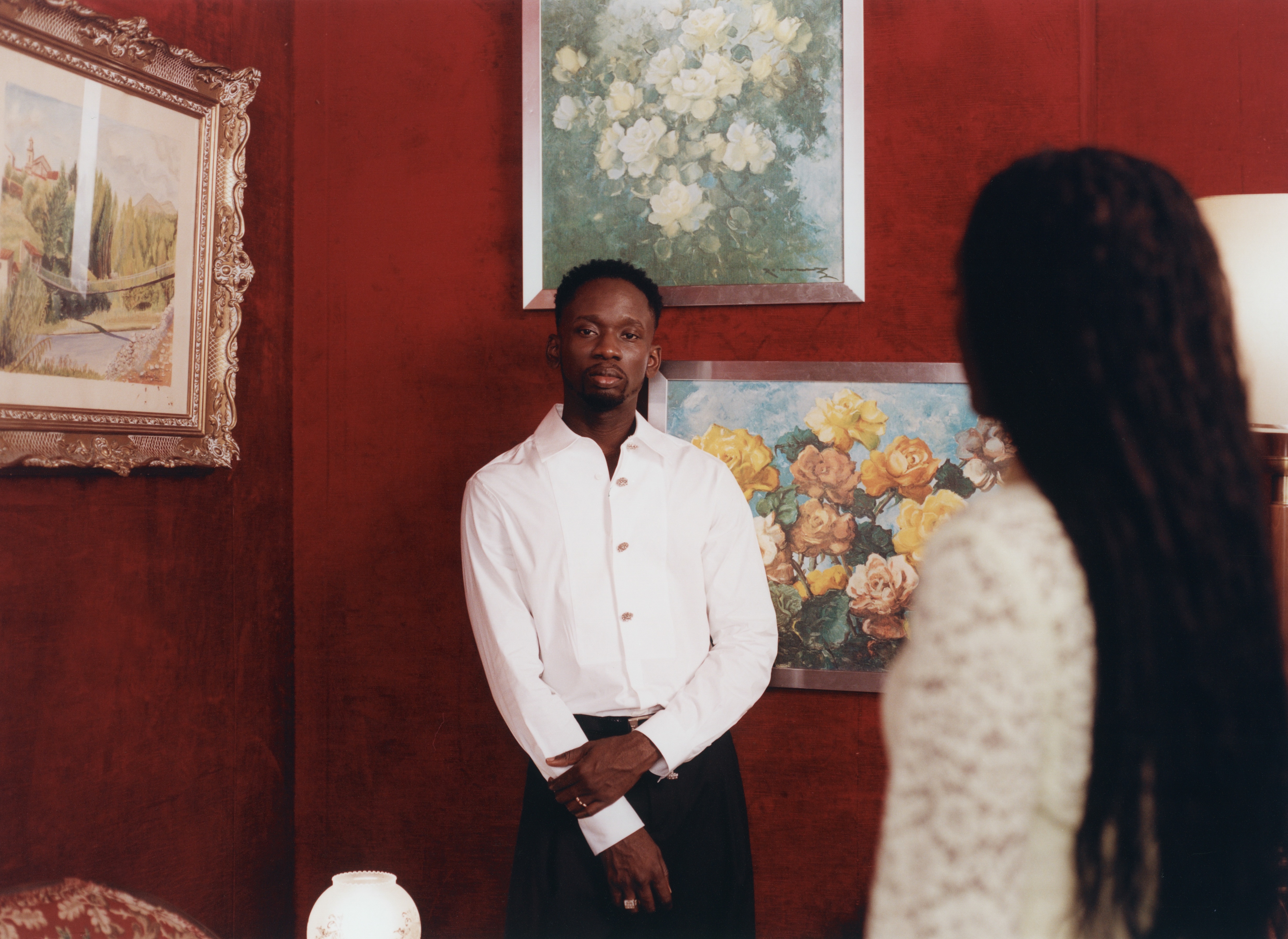
Before we begin to unfold your newest EP, I just have to say congratulations on your beautiful wedding; it was truly a global celebration of love. How has marriage influenced your outlook on life and artistry?
Thank you. Marriage has grounded me. It’s a reminder that beyond the music and the movement, there’s real life happening. It’s taught me balance, understanding love not just as emotion, but as commitment, patience, and growth. That energy definitely reflects in how I see and make music now.
You’ve always infused your music with elements of love and connection. Did this new chapter in your personal life shape the sound or themes of Maison Rouge?
Definitely. Maison Rouge came from a space of peace, clarity, and gratitude. You’ll hear that in the melodies. It’s less about heartbreak or hustle and more about connection, memory, and legacy. It’s like love in different colours, romantic, nostalgic, and even spiritual.
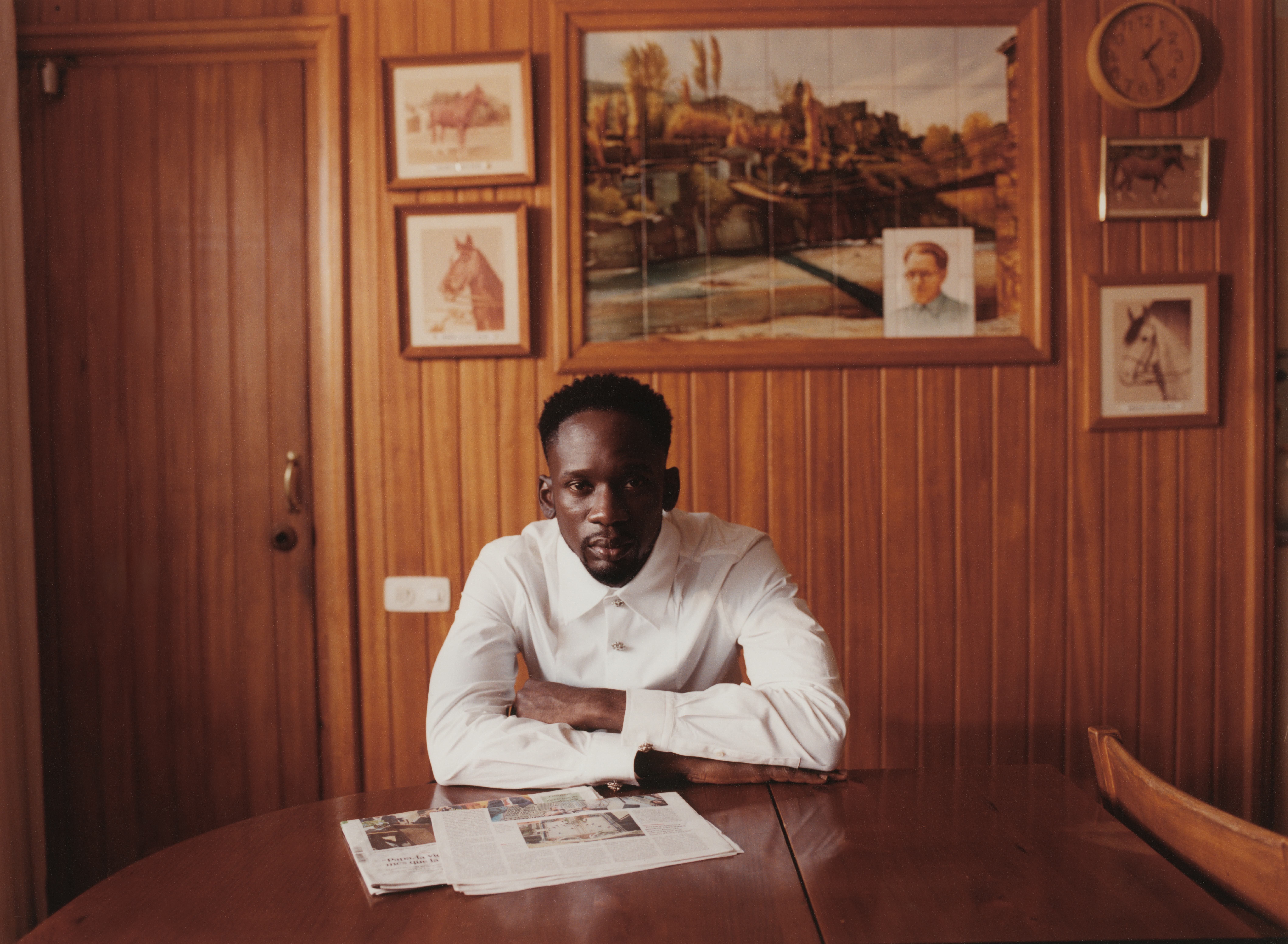
“Maison Rouge” feels like a homecoming to your Banku Music roots. How did the recording process for Maison Rouge compare to your earlier projects? Did you approach it differently after a decade in the industry?
Yeah, this one was very organic. We recorded it in Cotonou about 2/ 3 years ago, at a mansion house painted in clay red, that’s Maison Rouge. It felt like being back to the basics, no pressure, just friends, instruments, and stories. The difference now is experience. I’ve grown as a person, so I know how to guide my sound better while still keeping it raw.
The title Maison Rouge translates to “Red House.” What’s the story or symbolism behind that name?
That’s literally where the project was made, a red-painted house in Cotonou where I spent time reflecting and creating. But symbolically, red represents passion, love, and energy. Maison Rouge became this space of creation, reflection, and rebirth for me. It’s my safe house for art.
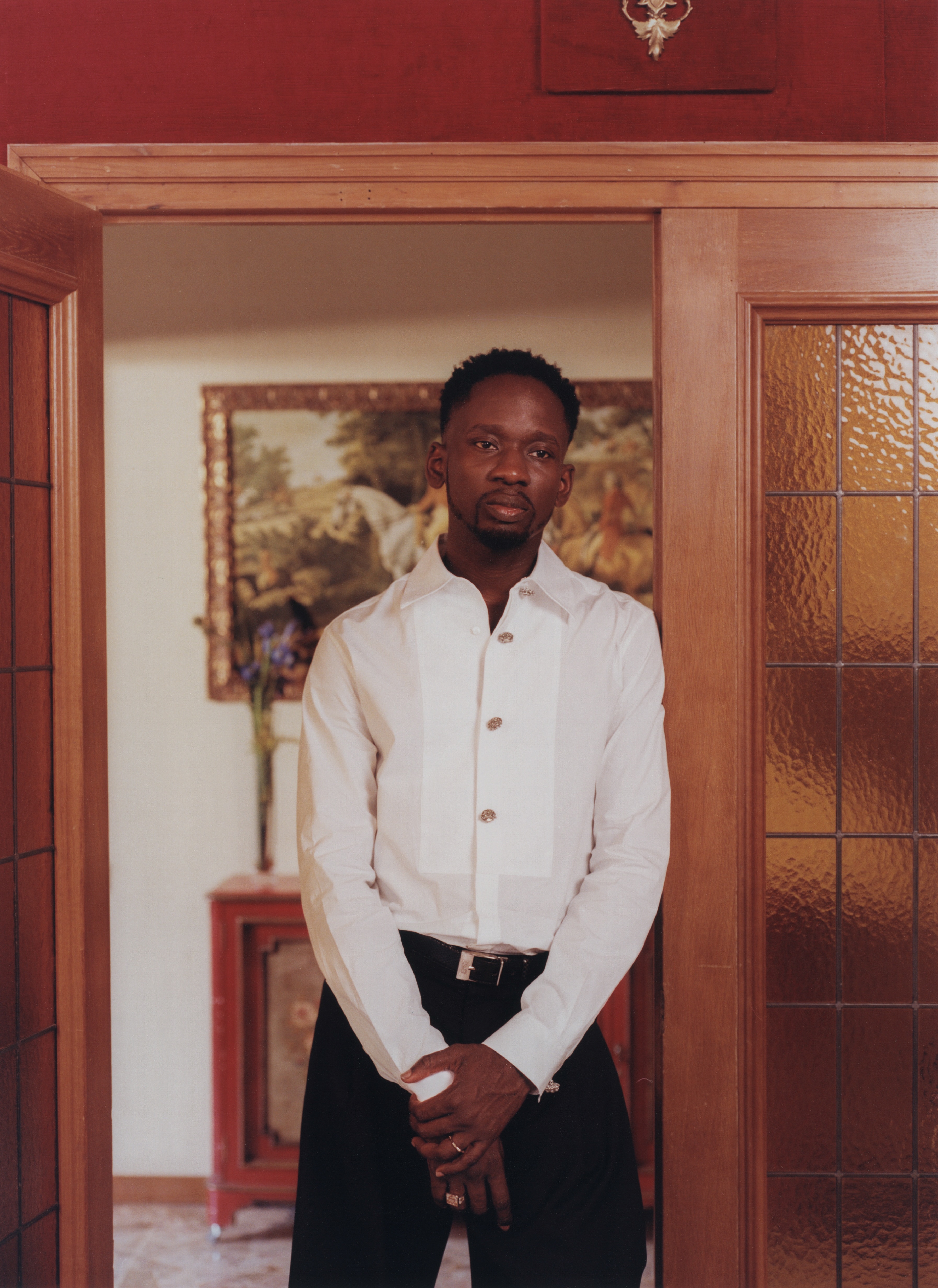
As someone who helped pioneer Afrobeats’ international breakthrough, how do you feel about the evolution of the genre today, especially seeing artists like Rema, Ayra Starr, Omah Lay, and others carrying the torch?
It’s beautiful to see. I feel proud, like a big brother watching the younger ones take the sound even further. Afrobeats is no longer a niche; it’s a global culture. The new generation is fearless, and that’s what we’ve always wanted, for the sound to evolve without boundaries.
With Maison Rouge being an homage to your roots and Skin Tight turning ten, what do you hope your legacy will represent for the next generation of Afrobeats?
I hope my legacy shows that you can dream beyond music, that you can build, invest, and create systems that empower others. I want people to look back and say, Mr Eazi didn’t just make hits, he opened doors. That’s what matters most to me, impact that lasts longer than a song.
